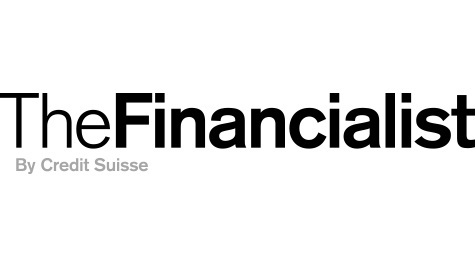The National Bureau for Economic Research defines a recession as “a significant decline in economic activity spread across the economy, lasting more than a few months, normally visible in real GDP, real income, employment, industrial production, and wholesale-retail sales.” And the question of the hour: Has the United States entered a recession? If not, is it about to? To both questions, Credit Suisse answers no. The bank’s Global Market economists expect the U.S. economy to grow by 2 percent...
Read More »Brazil’s Fiscal Imbalance: A Way Forward
Economists and executives at Credit Suisse’s 2016 Latin America Investment Conference agreed that Brazil should make getting its fiscal house in order a top priority as a first step toward re-igniting growth. But that will require a delicate balancing act. Watch the video to hear Mansueto Almeida, a researcher at the Brazilian Institute of Applied Economics (IPEA), explain Brazil’s budget challenges.
Read More »How Vulnerable Is Europe to China’s Slowdown?
The effects of China’s economic slowdown are truly global: At the same time that investors are pulling billions of dollars out of neighboring Asian countries, Latin American countries are seeing raw materials exports to the Middle Kingdom fall sharply, and China concerns have brought volatility back to stock markets around the world and doused investor risk appetite. Could Europe be the next to be affected by sinking Chinese demand? Unlike Latin America, a China-related sharp...
Read More »The Politics of Balancing Brazil’s Budget
As a country, Brazil has many things going for it: a large economy, a young population, and plentiful natural resources. But if it is to enjoy the economic growth those assets can provide, it needs to make structural reforms that can help close budget deficits, slow the growth in public debt, and remove obstacles to economic growth. Former presidents and central bankers, economists and industrialists, all agreed at the Credit Suisse 2016 Latin America Investment Conference (LAIC) that for...
Read More »Are Central Banks Running Out of Steam?
In the old days, before the world was awash in capital with nowhere to go, an announcement of monetary easing was generally considered a good thing, a sign that central bankers were on the job. Historically, in all but the most extreme circumstances, lower interest rates have tended to spur economic activity, with the contemporaneous effect of supporting risky assets. But we are clearly living in an extreme circumstance, and after eight years of such announcements from central banks, it’s...
Read More »Interest Rates: Does Hiking Damage Wealth?
Are financial markets wrong to be so obsessed with rate changes? Until late last year, no American or British investment professional in their 20s – and only very few in their early 30s – had experienced a rise in their domestic interest rate during their working lives. That all changed on December 16, 2015 as the US Federal Reserve finally increased rates and reversed a trend that had dominated financial markets for almost a decade. And yet, although the rate hike was...
Read More »Weathering China’s Slowdown
When it comes to global financial markets, China is in the driver’s seat. After it was reported in early January that the world’s second-largest economy grew at its lowest rate in 25 years in 2015, Credit Suisse’s Global Risk Appetite index slipped into panic mode – a rare occurrence that has typically only followed major macro events such as the failure of Bear Stearns or the U.S. sovereign debt downgrade. China is currently in the midst of what might be called a triple bubble...
Read More »The End of European Austerity?
Since 2009, Europe’s peripheral economies – Greece, Ireland, Italy, Portugal, and Spain – have tried to dig their way out of a debt crisis by cutting public spending and raising taxes. This year, however, will be different. Fiscal policy in the euro zone is expected to ease for the first time since 2010. The European economists in Credit Suisse’s Global Markets division say it’s high time fiscal policy loosened in the Eurozone. Had it done so earlier, the region might now be...
Read More »The End of Globalization? | WEF
We asked three experts for their opinions on democracy, diversity and the impact of debt. Watch the video to hear from former UK Prime Minister and advisor to Credit Suisse Sir John Major, Professor of Global Economic Governance Ngaire Woods, and Credit Suisse Chief Investment Officer Michael Strobaek. Find out more: https://credit-suisse.com/progress Connect with us on: LinkedIn: http://www.linkedin.com/companies/credit-suisse Twitter: http://www.twitter.com/creditsuisse Facebook:...
Read More »Why Boards Need to Become More Technologically Literate | WEF
How can senior management make informed decisions about the challenges and opportunities of the digital revolution? Can we take cyber security seriously without stifling innovation? Watch the video to hear from Professor of Cyber Security Sadie Creese, Behavioral Economist and Credit Suisse Board Member Iris Bohnet, and Credit Suisse Chief Investment Officer, International Wealth Management, Michael O’Sullivan. #WEF Learn More:...
Read More » Credit Suisse
Credit Suisse



